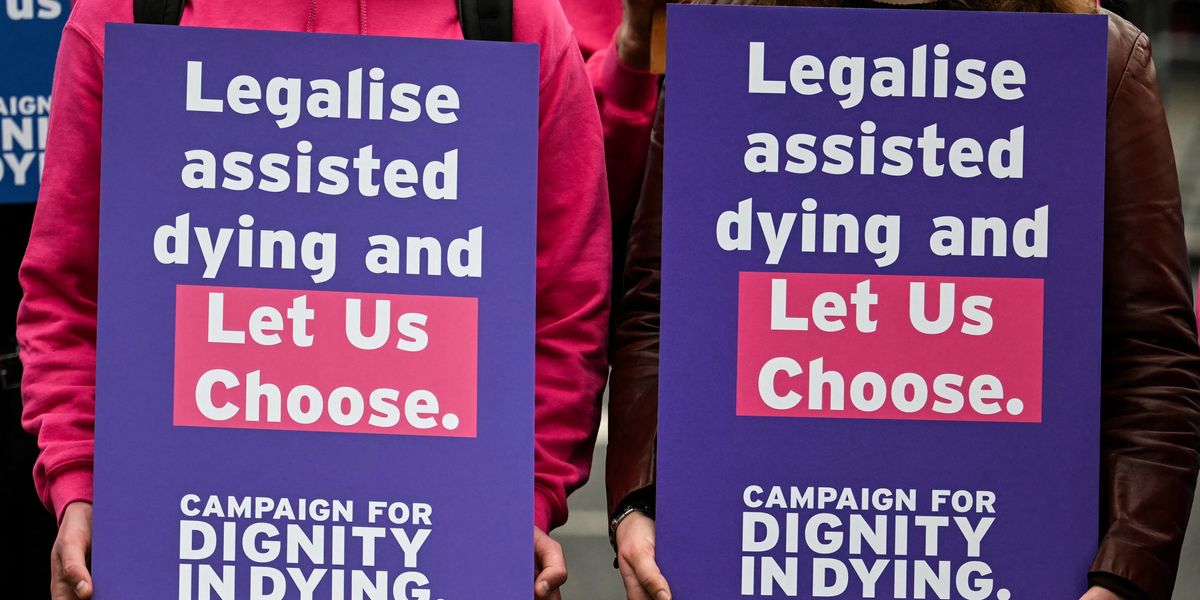The Controversy Surrounding Assisted Dying Legislation: A Closer Look
As the UK Parliament prepares to debate an assisted dying bill for the first time in a decade, the conversation surrounding this sensitive topic has intensified. Proposed by Labour MP Kim Leadbeater, the legislation aims to provide terminally ill adults with the choice to end their lives with medical assistance. However, the implications of such a bill have raised significant concerns among medical professionals, particularly regarding its potential impact on vulnerable populations, including teenagers suffering from anorexia.
The Concerns of Medical Experts
Dr. Claud Regnard, a palliative care specialist with over 40 years of experience, has voiced strong opposition to the proposed legislation. He warns that the bill could inadvertently encourage vulnerable individuals, particularly those with mental health issues, to consider assisted dying as a viable option. Regnard’s fears are not unfounded; he highlights the alarming possibility that a 16-year-old with anorexia could qualify for assisted death under the proposed criteria, which could classify their condition as a terminal illness with a prognosis of less than six months.
This concern is echoed by Chelsea Roff, who runs an international eating disorder support charity. Roff points out that there have been instances where individuals with eating disorders have been granted euthanasia, raising ethical questions about the criteria used to determine eligibility. According to a 2024 report, at least 60 cases of euthanasia for eating disorders have been officially recorded worldwide, highlighting a troubling trend that could be exacerbated by the proposed legislation.
The Slippery Slope Argument
One of the most contentious aspects of the assisted dying debate is the "slippery slope" argument. Critics, including Regnard, fear that once assisted dying is legalized for terminally ill patients, the criteria for eligibility could gradually expand to include those with mental health conditions or other non-terminal illnesses. This concern is not merely theoretical; it has been observed in jurisdictions like Oregon and Canada, where the thresholds for receiving euthanasia have been lowered over time.
Regnard draws disturbing parallels between the proposed legislation and the infamous case of Harold Shipman, a doctor who was convicted of murdering over 200 patients. He argues that the bill could empower unscrupulous doctors to exploit vulnerable patients, suggesting that individuals like Shipman could thrive in an environment where assisted dying is normalized. This perspective raises critical questions about the safeguards that would need to be in place to prevent abuse.
The Role of Public Opinion
Despite the concerns raised by medical professionals, public support for assisted dying remains strong. Recent polls indicate that two-thirds of Britons favor the legalization of assisted dying, often viewing it as a compassionate choice for those suffering from terminal illnesses. Leadbeater argues that her bill would establish clear boundaries to prevent the misuse of assisted dying, asserting that it is essential to have a serious debate on the matter.
However, Regnard cautions that public understanding of the implications of assisted dying is often superficial. He emphasizes that informed choice is crucial, and many people may not fully grasp the potential consequences of legalizing euthanasia. The debate is further complicated by emotional narratives surrounding tragic cases, which can skew public perception and overshadow the ethical complexities involved.
The Legislative Landscape
The last significant debate on assisted dying in the UK occurred in 2015, when a bill proposed by MP Rob Marris was defeated by a substantial margin. Since then, the conversation has remained largely dormant, but the recent push for new legislation has reignited discussions about the moral and ethical implications of assisted dying. Leadbeater’s bill, which would allow mentally competent adults with terminal illnesses to choose assisted death, represents a significant shift in the legislative landscape.
As the debate unfolds, it is crucial for lawmakers to consider the potential ramifications of such legislation on vulnerable populations. The voices of medical professionals, mental health advocates, and ethical scholars must be heard to ensure that any changes to the law prioritize patient safety and well-being.
Conclusion
The proposed assisted dying legislation in the UK has sparked a complex and multifaceted debate that touches on ethical, medical, and societal issues. While the desire to alleviate suffering is a powerful motivator, the potential consequences of legalizing assisted dying cannot be overlooked. As Parliament prepares to engage in this critical discussion, it is essential to approach the topic with care, compassion, and a commitment to protecting the most vulnerable members of society. The stakes are high, and the implications of this legislation will resonate far beyond the walls of Parliament.
